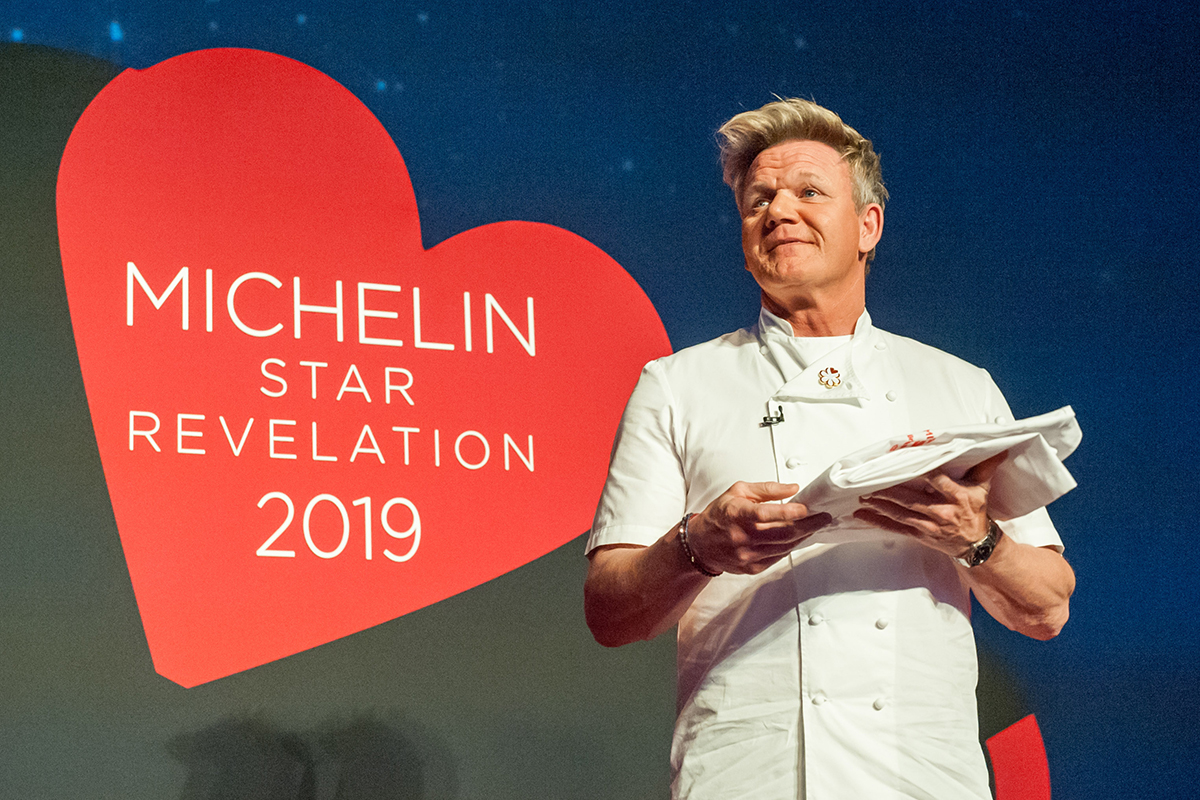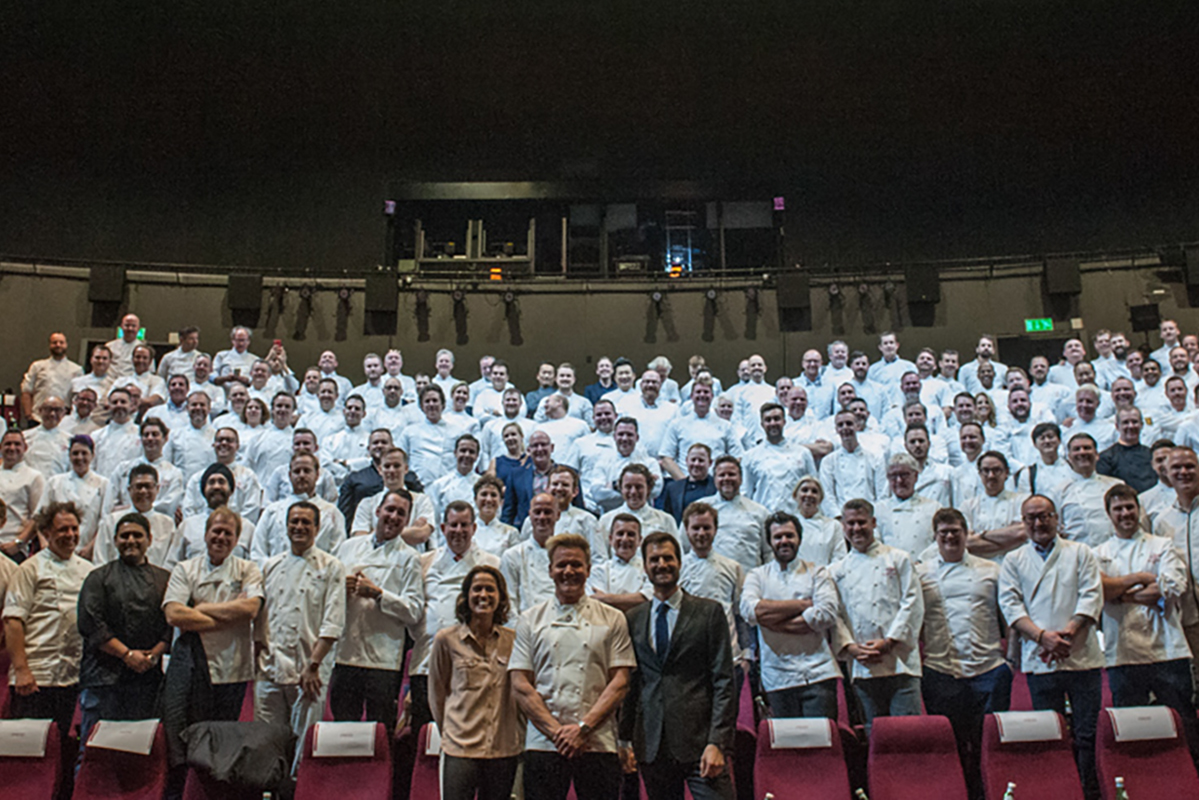This website uses cookies so that we can provide you with the best user experience possible. Cookie information is stored in your browser and performs functions such as recognising you when you return to our website and helping our team to understand which sections of the website you find most interesting and useful.
Demystifying Michelin stars with Rebecca Burr, editor of the Great Britain and Ireland Michelin Guide
By Mark Captain | 29 October 2018 | Food & Drink
Tempus talks to Michelin editor Rebecca Burr about the inspectors that make and break restaurants and next year’s gastronomic trends

Let's face it, in the world of gastronomy there's little as exciting as discovering a restaurant has been awarded a Michelin star or two. The Michelin Guide has become synonymous with quality and reputation, and its inspectors have the power to make or break even the most enduring bastions of fine dining. These stars also really do matter to even the toughest of chefs, with the likes of chef Andrew Wong likening his Michelin star to being happily married.
Tempus attended the Michelin Star 2019 Revelation celebration to sit down with Great Britain and Ireland Michelin Guide editor Rebecca Burr. In the company of some of the UK's biggest names in hospitality – including multiple Michelin star chef Gordon Ramsay – we heard about the three new Michelin two-star restaurants and 21 new one-star restaurants unveiled at the launch. But where did it all begin?
“The Michelin brothers were gourmands of their time, while also manufacturing tires," Burr says of the guide's humble beginnings a century ago. "They would tell people where to stop for some respite – and the guides were born. Today, 28 countries are covered by Michelin with appearances in guides becoming huge accolades. We pride ourselves on consistency, and restaurants can’t pay to be listed.”
Burr says there are multiple systems in place to ensure the fairness of the process and described it as being very transparent internally. For example, if a Japanese restaurant in London is being considered for an extra star or two, the guide can call upon a colleague from Japan to provide a second opinion. This links in with a much talked about point that stars are awarded solely on the quality of the food served. Nothing matters but what's on the plate – but that doesn't mean the inspectors don't notice the rest.
“Chefs operating at a Michelin-star level don’t pair their food with shabby surroundings or disinterested service," says Burr. "We are observers of what is going on and notice that trends have changed in recent years. There is still room for pomp and ceremony but at the same time, we are finding that people enjoy great fare in casual surroundings just as much. Price is also very important.” >>

Burr worked as an inspector for 12 years, so knows the ropes well. Inspectors work full time in different areas/regions and spend three weeks of every month on the road eating lunch and dinner every day. Each restaurant under consideration will have at least two meals sampled by inspectors. And although it sounds enjoyable, Burr says it can be gruelling.
"I receive a lot of applications from potential inspectors every day. We want people to be inquisitive, understanding and detailed – which is why new inspectors shadow current inspectors for six months or longer," Burr says. "We invest in our inspectors and want them to become experts at what they do so that they deliver consistency every time. This makes it fair to the restaurants being assessed.”
The profile of the much feared and revered inspector is also changing. While formal hospitality qualifications were once pre-requisites, experience in hospitality is also important. Burr explains: “We have recently taken on people who have been Chefs, restaurant managers and those in the wine business. Individuals with their own personality and intuition are critical to the job. As well as researching regions online, we want inspectors to walk the streets and find those hidden gems. Word of mouth is also really important.” >>

“The demographic of our readers is changing all the time. We used to think it was older affluent readers who bought the guide, but these days we have younger couples with more disposable income through to foodies who follow Michelin stars around the world in a quest to dine in every restaurant with the award. We still receive letters from readers but increasingly we receive emails, comments on our Twitter feed and Instagram,” she says.
In the UK, Burr says Ireland's restaurant business is booming thanks in part to its immense produce, while Scotland and the South West England are underrepresented in the 2019 guide. What are the trends restaurants should be jumping on, then, to improve ratings for 2020?
"Two key trends are the further improvement in the quality of vegetarian offerings, and more open kitchen/counter top dining," she says. “The image of a chef has changed so much and everyone is now interested. Open kitchens are increasing and moving things up a gear as the kitchen becomes a focal element in a restaurant. But, in the end, it’s all about consistently good food."







